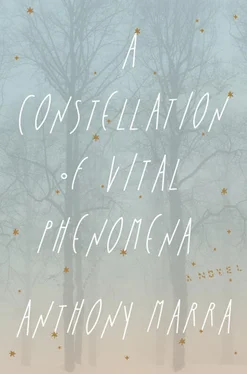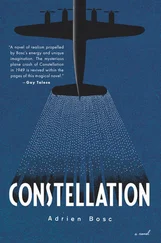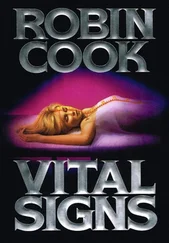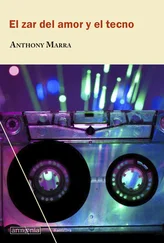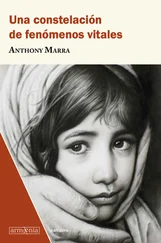“You think I’m selfish, but I’m not,” Ramzan said, behind him, with unbearable sincerity. “I meant what I said about the insulin. This will all be over, eventually. We just need to survive it. You can’t survive without insulin. We both need food, right?”
“I’m seventy-nine years old. Seventy-nine. The rest of my life is not worth the rest of Havaa’s or Dokka’s or Akhmed’s.”
“I’m not holding a gun to anyone’s head.”
“Ramzan.” Khassan sighed. A wave of exhaustion seeped through him. “You’re putting the bullets in the chamber.”
“I’m just like you! You said you never laid a finger on my mother or me. I’ve never laid a finger on anyone either!”
“That’s all?”
“That’s all.”
“Just a name over the phone?”
“That’s all!”
“Then another name, no? And another, and another, and another, and another, and another, and another, and another, and another, and another, and another, and then Dokka?” He found his own bewilderment reflected in Ramzan’s eyes. His stupid, stupid child didn’t understand what he was doing or why any more than Khassan did.
“It was for us. So that we’ll survive together. You’re the only person I have. You’re my family.” It was the saddest, sweetest thing he’d ever heard. In another world he would have embraced Ramzan, kissed his forehead, held him so that his son’s heart beat indistinguishably against his own.
He walked to the table, cupped Ramzan’s shoulder. His grip was strong and consoling. He imagined Ibrahim on the mountaintop and the verses returned unbidden: My son, I dreamt that I was sacrificing you .
“You speak of family; then let Akhmed and Havaa be.”
“I know you want him for your son. I’ve known that my whole life.”
“And so what if he is, Ramzan?” Khassan asked, clutching Ramzan’s shoulder. “What then?”
Ramzan’s face went flat, cold, depthless. “None of us is bound to anyone by so trivial a distinction. Do you think paternity even matters? No, Father, no. We are the children of wolves. That’s all, Father. He could be your son, your brother, your nephew, your neighbor, your friend, and I wouldn’t save him.”
“And yet you save me. What a waste.”
Khassan walked to the door, opened it to the wind. He looked back. Ramzan watched him, as frozen and impenetrable as a winter pond. You are mine. I recognize you. We twist our souls around each other’s miseries. It is that which makes us family .
Outside, his dogs were waiting for him.

THE VILLAGE CHIMNEYS were sending up smoke among the birch trunks when Akhmed heard a low whistle from the trees. Khassan, surrounded by his guard of feral dogs, stepped into the road with an orange hand cupping the flashlight. The dogs, watchful, ears erect, studied him warily.
“I didn’t want Ramzan to see me waiting for you,” Khassan said. His fingers glowed.
“He was waiting for me last night, asking about Havaa.”
“I spoke with him today. For the first time in two years. My own son. I begged him.”
The statement knocked Akhmed a step back. Surprised, honored, grateful that the man would break the silence for Havaa’s sake, his sake, he set his palm on those radiant fingers and the road was dark again. “It’s all right.”
“I’m sorry, Akhmed, I’m—” A sob halved the old man’s voice and Akhmed gripped his fingers. When his mother died, Khassan wept at the burial. When Akhmed’s father died, Khassan provided the shroud. Akhmed had always remembered this, how Khassan had shared his mourning as if he were family. Dog paws pattered in the undergrowth.
“So they will come for me.” For years he’d lived with the fear of murder, torture, or disappearance, as all men of his age did, and it was the senselessness that truly frightened him; that the monumental finality of death could come arbitrarily was more terrifying than the eternity to follow. But if his death severed the connection between city and village, it would be neither futile nor insignificant, and he would be more fortunate than many thousands of his countrymen.
“I don’t know,” Khassan said. His hands shook under Akhmed’s.
“And Ramzan doesn’t know where I’ve been these past three days?”
“I don’t think he wants to know. So long as the burden of disclosure is on you, some small corner of his conscience can stay clean.”
He imagined her right then, annoying Sonja, asking her to explain why feces are brown, why ears bend, so young and silly and smart. She was a child without parents, and he was a man without children. Ten years earlier he couldn’t have imagined claiming her, but the rules of that society had broken. There was no one left to say whom you could love.
“I won’t say a word,” Akhmed whispered.
“Im sorry.”
“Havaa is my only allegiance.” The moon outlined Khassan’s face. Tears rimmed his eyelids, and his lips pressed into a tight frown, but he didn’t appear contrite. If Akhmed hadn’t known better, he would have thought it was an expression of overwhelming pride.
“Do you remember in the first war, Dokka carried a book with him everywhere?” Akhmed asked. “Whenever the Feds passed, Dokka would open his book and start reading.”
Khassan gave a relieved grin. “The Feds thought the rebels were illiterate, so by reading a book he proved he wasn’t a rebel.”
“But it wasn’t even a book, was it?”
“No, a journal. All the pages were blank. But they couldn’t tell that.”
They laughed and the flashlight beam tore hoops in the shadows.
“And he wasn’t shot,” Khassan mused.
“No, not then.”
Khassan pulled a manila envelope from his overcoat and passed it to Akhmed. The exchange, Akhmed thought, was the nearest thing to a postal service in many years. “I was hoping you could give this to Havaa. It’s a letter, some memories of Dokka before he became a father. So she’ll have something to look to when she’s older.”
“I’m glad you’re optimistic,” Akhmed said.
“What do I do? I know what honor requires, but that ? To my own son? With my own hands? Am I expected to do that ? Tell me what to do, Akhmed. You know that your name is the next he’ll give the Feds. You tell me, what should a father do?” Khassan had leaned forward, his stale, quick breaths warming Akhmed’s cheek, his hands reaching for Akhmed’s shoulders. It was a peculiar sensation. They had never hugged before.
“I don’t know,” Akhmed said. There was no right answer and he was too tired, too cold, and too close to home to sift through all the wrong ones. “I’ve never been a father. I don’t know what you should do.”
“I’m not asking for your approval. I’m asking for your advice.”
Akhmed nodded. “I’ll think about it.”
Khassan stepped back and his face, paled in moonlight, shifted violently. He opened his mouth, but for a moment only his eyes spoke. Akhmed would have filled the fragile space between them with gratitude. He would have thanked Khassan for the advice, the stories, the meals, the cigarettes, the silences, everything, even the interminable history lessons, they had shared over the years. He would have said that Khassan had been like a father to him, in the ten years since his own father had passed. He would have said it, but Khassan spoke first. “I feel fortunate to know who you are, Akhmed. I’ve wanted to say that for a long time.”
Their eyes met and broke away. Such naked acknowledgment of their relationship embarrassed them both, and nodding, turning toward the village, Akhmed said nothing.
Читать дальше
